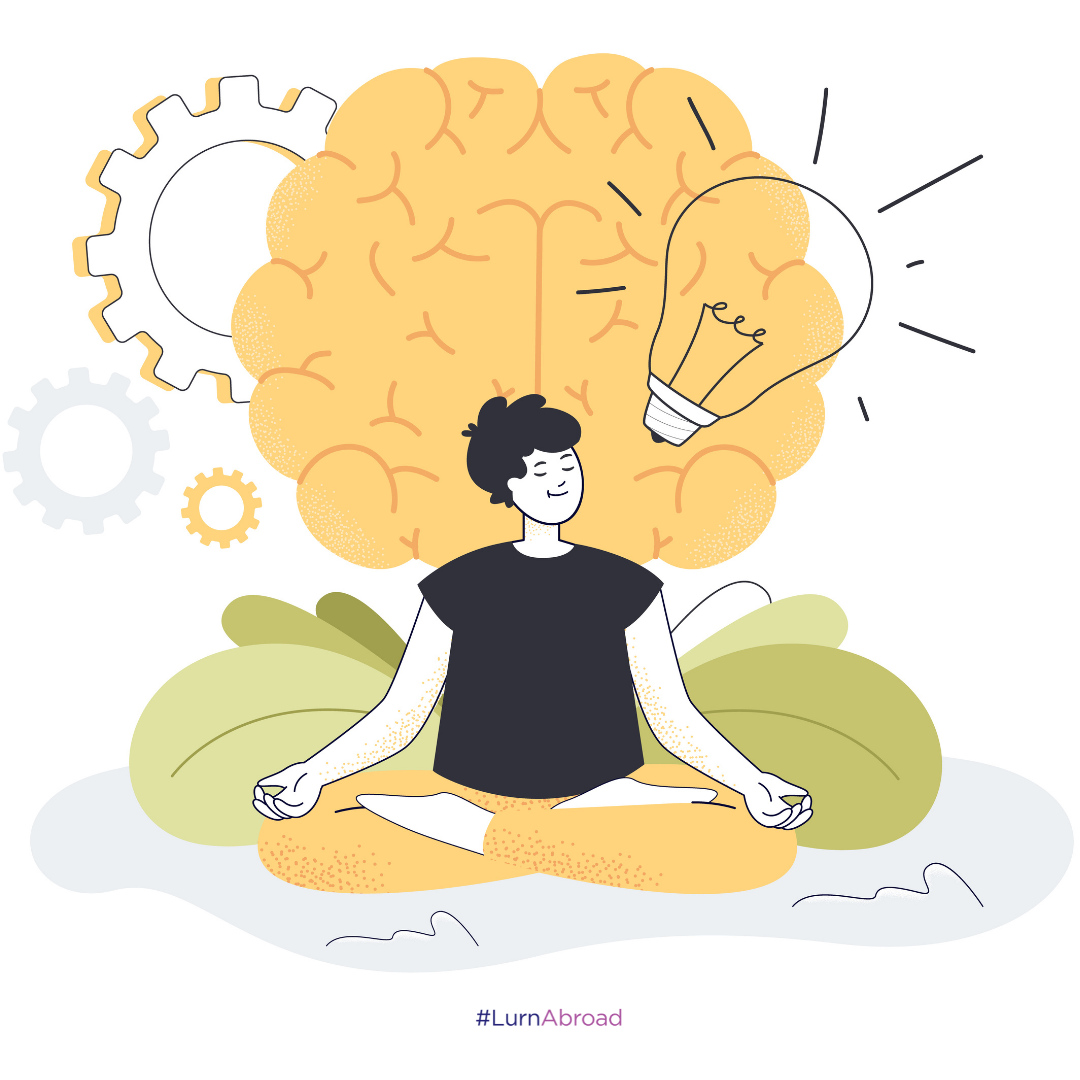While young people are generally well adapted to change, the uncertainty brought about by the Covid-19 pandemic has increased anxiety levels among university-goers. As parents and guardians look for ways to support their children through these times, universities globally are adapting curriculums and exam formats to make the process less complex for students. Even so, an increasing number of students are experiencing change anxiety.
Change anxiety is described as a fear of transition that prevents a person from making sound decisions and therefore inhibits their smooth movement to a new situation. The person struggles to cope with change, forgetting that change is constant, and tends to want to stay in their comfort zone if their desired results cannot be achieved.
As a mother to a teenager who will soon go to university, I recognise how this may be affecting students and their families, and more so international students, whose dreams of attending an overseas university were brought to an abrupt halt by the pandemic. While things are looking up lately, no one knows for sure how the situation could turn in the next few months – will countries continue to restrict international travel? Will online classes continue? will students get to experience campus life before their course ends?
The situation is unique and equally complex for all of us, but it is worth mentioning that each one of us has the inner strength to manage how we react to it. Here, I propose a few tips to manage the stress or anxiety resulting from unexpected changes in your education and career plans.
KEEP IN TOUCH WITH FRIENDS
With the pandemic now past its second year, you’ve likely spent a lot of time away from your friends and peers. If you craved me-time, you got it in plenty, so now might be a good time to make the effort to reach out to your friends.
Interacting with your peer group is crucial as it helps to destress, vent out, feel belonged and stay well. While you may prefer to send a text message and wait for a reply, nothing beats listening to a friend’s voice. It could lift your spirits or give you a chance to ask, ‘How can I help you?’ If nothing else, it might give your friend an opportunity to express how they’re feeling.
Group study is yet another brilliant way of self-care. It doesn’t have to be a big group – just two friends with great rapport will do. It could be a safe haven where you can discuss your problems, co-learn, understand that others are in the same boat, and laugh at stupid jokes.

USE A PLANNING APP
Anxiety rises when there is a never-ending to-do list. With some planning, you can be better prepared for unexpected challenges. Organise your study materials and other documents and make a list of what action to take and when. Use an app or do it manually, whatever works best. This will allow your brain to function methodically. It’s like the data is already fed and the brain is prepared to work on it. Moreover, making a list will help you remember tasks that are high priority, and ticking them off will make you feel more relaxed.
The real challenge, however, is in the execution. Set reminders and reward yourself for completing a task. Many apps cater specifically to students, while others can be used by anyone who wants to get more organised. Some recommended apps are myHomework student planner, Trello, Evernote, StayFocusd and the Pomodoro apps.
TURN OFF YOUR MOBILE PHONE FOR 30 MINUTES EVERY DAY
This is hard for most of us, and more so for young adults who may be feeling disconnected and confined in these times. However, those thirty minutes can help your mind to relax and regain its thinking ability. Our brain gets tired of the information overload from social media. The constant scrolling saps our energy and leaves us feeling weary and irritated – not to forget that it also dramatically affects our mental health when we constantly compare our lives with the ‘perfect’ lives of others.
Here’s something worth a try: for three days, turn off all your gadgets just for thirty minutes every day. You will see a marked difference in your mood and performance. Initially, you may feel restless and reach out for your cell phone time and again – this is when you can train your brain to do what you know is right and give up an unproductive habit.
DON’T KEEP YOUR EMOTIONS TO YOURSELF
In a counselling session with a sixteen-year-old, I found that she struggled to share her true feelings with her mother, which was building anger in her. She had much to share with her mother but was afraid of being misunderstood or lectured over it. This can lead to bottled-up emotions, which can then cause anxiety or other mental health problems. Sharing your true emotions is a healthy way to reduce stress, but it might be equally difficult to practise. If it’s not possible for you to open up to the person who caused you emotional hurt, look for someone who can listen to you empathetically and can be there for you. It could be another family member or a friend. If no one is available, practise journaling. The aim is to release blocked emotions for your emotional and mental healing.
LEARN TO SET BOUNDARIES WITH OTHERS
A seventeen-year-old I counselled recently felt angry for being unable to stop his girlfriend from belittling him in front of her friends. He resented the fact that she would make fun of him and he could not say a word.
Most of us are not adept at setting boundaries with others, which leads to frustration, resentment, anger and even mental illness. This is one skill we all need to learn. The first step in setting boundaries is to cultivate the ability and courage to say no. Learn to say no to things that give you anxiety, make you unhappy, or leave you feeling unappreciated. When you learn to say no, you will also have more respect for others who do it.
HAVE AN EXERCISE ROUTINE
This may seem like an additional task on your long to-do list, and you’ve likely received ample advice on this, but an exercise in any form is one of the best ways to maintain your wellness.
I know many successful leaders who say they come up with the best ideas and plans while running. I know students who felt their mood improve after physical activity. My only ask is that you give it a try, even if for fifteen minutes a day. After you’ve decided what type of exercise you enjoy most, break it down into smaller sessions. Start small, stay consistent, and increase gradually as your body adapts to it. The rewards will be yours to experience!
BE MINDFUL OF YOUR SELF-TALK
There is no denying that change anxiety is a cause of irrational decisions and sleepless nights. The problem increases manifold when we do not manage the quality of our thoughts. We are our own worst critics, and the constant negative self-talk is the biggest enemy to win over.

Psychologists recommend paying attention to your self-talk so that you can gain control of the narrative in your head. Watch what you say to yourself, write down things that you say to yourself repeatedly, and if you find negative self-talk pervading this list, you know what needs to change.
Learn to give yourself positive and constructive feedback rather than defaulting to criticism. Accept that you’re not good at everything – no one is!
A LAST WORD
Accepting that anxiety is building up is not easy, nor is asking for help. This is where the role of parents, teachers and counsellors becomes important. However, if the adults in your life are for some reason not in a position to offer support, don’t hesitate to go and ask for help outside your immediate circle.
These are some of the best years of your life, and they can’t be wasted. Your life is just beginning. The pandemic will pass and even become a distant memory one day. What you will remember is how you coped through it all. If you feel lost or anxious, just gather the courage to find help. It could be a friend, a trusted teacher or a toll-free number waiting to help you. As Dr Wayne Dyer said, don’t go with your music still in you.
Vandana Sehgal is a Sweden-based author, book writing coach and holistic wellness coach. Her first book, I Love Myself, guides people to build self-awareness, silence their inner critics, and find the courage to act toward their dreams. Her second book, Write, supports writers in fulfilling their passion for becoming accomplished authors. As an entrepreneur and coach, she knows that the success ladder needs to be created, it never comes served for anyone. ‘Fearlessly passionate’ are the two words that define her. Connect with her at www.anewyou.se.





